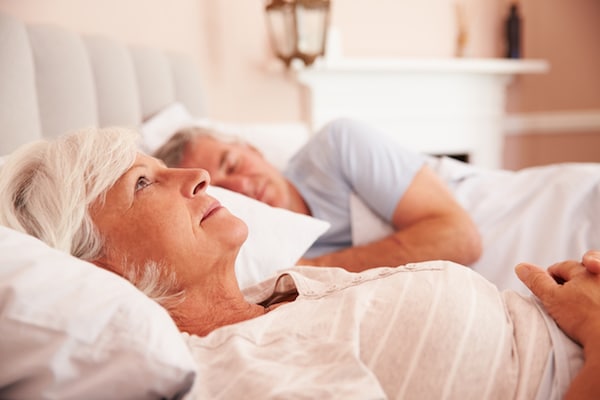Sleep Apnea is a Sleeping Disorder
Obstructive sleep apnea is a sleep disorder that disrupts breathing and increases the risk of a number of serious health complications including heart disease, stroke and diabetes.
It affects an estimated 18 million Americans.
If you suffer from sleep apnea in Charleston, you might be at risk of developing hearing loss in addition to other problems.
What is Obstructive Sleep Apnea?

There are two main types of sleep apnea, Obstructive Sleep Apnea (OSA) and Central Sleep Apnea.
Obstructive Sleep Apnea
OSA is far more common; it occurs when muscles in the back of the throat relax during sleep, causing the airway to collapse.
This results in breathing pauses that can last for 10 seconds or longer, causing fragmented sleep and low blood oxygen levels.
People with sleep apnea in Charleston are prone to loud snoring and may wake up gasping and choking, though this may occur repeatedly throughout the night without them even realizing it.
Other signs include morning headaches and dry mouth, daytime fatigue and drowsiness, irritability, depression, concentration difficulties and memory loss.
People with OSA are often so tired during the day they are unable to stay awake and may fall asleep at work or, worse still, behind the wheel of an automobile – increasing their risk of a motor vehicle accident. OSA is a serious and potentially fatal disorder.
One side effect mentioned less often is hearing loss.
There have been several studies over the years that have established a correlation; one study examined 14,000 people and found that hearing loss was more common in individuals with a higher body mass index (BMI), those who snore and patients diagnosed with severe sleep apnea.
Another study studied of people with severe OSA found that those with the lowest oxygen levels were significantly more likely to suffer from hearing loss.
Researchers believe this is related to reduced blood flow to the ears combined with loud snoring, both of which may contribute to permanent damage of the hair cells in the inner ear that are responsible for hearing.
Causes and Treatment
The National Sleep Foundation lists a number of risk factors for OSA.
These include anatomy (a small upper airway; large tongue, tonsils or uvula; small jaw; large overbite; recessed chin; large neck), being overweight, smoking, alcohol use, being older than 40 and ethnicity (African-Americans, Hispanics and Pacific-Islanders are most likely to develop OSA).
There is a possible genetic basis as well; OSA does seem to run in some families.
It’s important to diagnose and treat OSA as soon as possible to prevent serious health problems including hearing loss and to reduce the risk of being involved in an automobile accident.
Your Charleston audiologist will recommend that you undergo a sleep study either at home or in a lab and decide on a treatment plan based on the severity of your sleep apnea.
Continuous positive airway pressure (CPAP) machines are most popular and effective; they deliver a steady flow of air that keeps your airway open, preventing pauses in breathing.
Oral devices such as mouth guards may also prove effective. Losing weight often helps; other lifestyle changes can also make a positive difference, such as giving up cigarettes and reducing alcohol consumption, particularly before bedtime.
Your Charleston audiologist recommends a hearing exam if you are suffering from OSA, as well. Taking a proactive approach now can reduce your risk of developing serious complications later.
Related Hearing Loss Posts:
Other Charleston Audiologists Office Locations
James Island
537 Folly Rd
Charleston, SC 29412
(843) 459-8965
Mount Pleasant
180 Wingo Way, Suite 103
Mt Pleasant, SC 29464
(843) 766-7103
